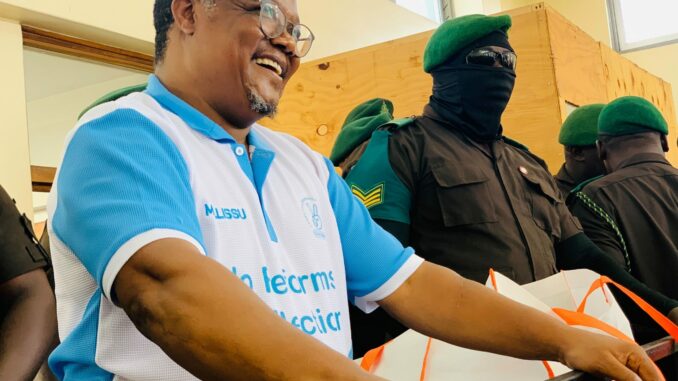
After advocating for electoral reforms prior to the general election in October 2025, Tanzania’s most well-known opposition figure appeared in court on Monday, May 19, to face treason charges. Treason convictions are punishable by death. However, a spirited Tundu Lissu was wearing a T-shirt that read, “no reforms, no election”—the same slogan that led to his arrest on April 9, after speaking at a public rally.
Lissu had started a hunger strike in protest of having to appear in court virtually rather than in person.
After surviving an assassination attempt in 2017, the politician, who is the chair of the opposition Chadema party, has been in exile for a portion of that time due to threats against his life. During his court appearance, Lissu made gestures of victory and urged supporters not to be scared. To finish their investigations, investigators requested an additional two weeks. On June 2, the trial will begin. Lissu supporters have been subjected to a crackdown.
Martha Karua, an opposition politician from Kenya, was deported after traveling to Tanzania prior to the hearing. Three Kenyan activists and Willy Mutunga, a former chief justice of Kenya, were taken into custody. Korir Sing’oei, the secretary of Kenya’s foreign ministry, demanded Mutunga and his delegation’s release on Monday. Samia Suluhu Hassan, the president of Tanzania, declared Monday that she would not permit foreign activists to cause instability in her nation.
Human rights activists have accused her administration of oppressing the opposition with harsh measures. These allegations are denied by the government. In the October election, which will also select members of parliament, Hassan will be seeking reelection. Laws that favor the ruling party, CCM, which has held power since Tanzania gained its independence in 1961, and the lack of an independent electoral commission have been criticized by the Chadema party.
